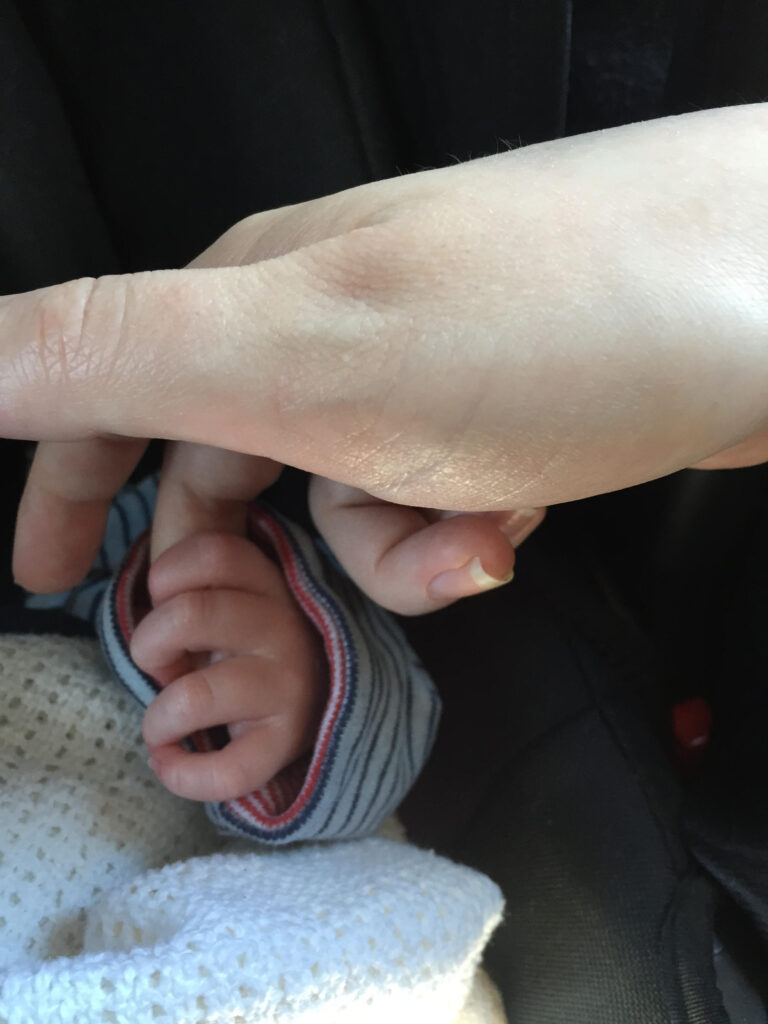
Child safety is always the top priority of every parent. However, when it comes to allergies, even the most vigilant parents can be caught off guard.
According to statistics, about 8% of children in the US are reported to have food allergies. These are only the tip of the iceberg as there are many other allergens that may affect babies.
What makes baby allergies particularly worrisome is how easily the symptoms can go unnoticed, as little ones can’t always communicate their discomfort. That’s why we have curated a list of the top five trigger factors so you can take steps to keep your baby safe from allergies.
Baby Products
The international baby products market was valued at $320.65 billion in 2023 and is projected to increase at a CAGR of 5.9% each year up to 2030. Even though the industry is booming, not all products are safe for sensitive baby skin. Preservatives in these products are known to cause an allergic skin reaction called contact dermatitis, which results in rashes.
Let’s take the case of baby powder itself. Some of them contain talc, a mineral that contains trace amounts of asbestos. It causes severe health consequences and can trigger allergies among babies. As a result, many talcum powder lawsuit cases have been raised over the past few years. With this in mind, many parents are opting for cornstarch-based powders.
As per TorHoerman Law, the number of talcum lawsuit cases is increasing steadily. Most of them highlight the failure of manufacturers to show adequate warnings associated with the ingredients.
Insects
Insect bites and stings can cause allergic reactions in babies. While most insect bites just result in itching, some babies may experience more severe reactions, such as vomiting, breathing difficulty, etc.
Allergies are not only from bites. Sometimes, even a tiny insect dropping can trigger them. Therefore, you need to take extra care of your baby through strict measures like:
- Cover the food properly.
- Dress your baby in long-sleeved clothing.
- Avoid using flower or fruit-based scents, as they may attract insects easily.
- Keep your home free from insect nests.
Air Contaminants
The respiratory system of babies may not be as strong as ours to handle pollutants like dust, smoke, mold spores, etc., in the air. As a result, their bodies might develop allergic symptoms promptly. Interestingly, some studies have even established a connection between early exposure to air contaminants with food allergies.
As babies spend most of their time indoors, Volatile Organic Compounds (VOCs) have a significant stake in their health. These are chemicals released as gasses from various household items such as paints, cleaning products, furniture, etc. They are often odorless and can be detected only once the symptoms are visible in the baby. Check out some tips to make your indoor atmosphere more safe:
- Use a high-quality air purifier in your home, especially in the baby’s room.
- Maintain proper ventilation and control humidity levels to prevent mold growth.
- Regularly clean using a HEPA filter vacuum cleaner.
- Choose low-VOC paints and furniture.
Pets
Pets can be a valuable addition to your family, but they can also cause allergies for some babies. These allergies are mainly caused by proteins found in an animal’s skin cells (dander).
Some of the most common symptoms of pet allergy among babies are itchy eyes, sneezing, coughing, etc., which may get stronger as the exposure gets prolonged. They may not appear immediately after contact with the pet. If you suspect that your baby has pet allergy:
- Keep pets out of the baby’s room at all times.
- Regularly groom and bathe pets to reduce allergen shedding.
- Relocate your pet to a new home.
Medications
Not all medicines are safe; some have strong side effects that are more dangerous than the illness itself. Penicillin and ibuprofen are some of the most common medicine ingredients that can create allergic reactions in babies. Studies have shown that adverse medications are responsible for about 10% of childhood hospitalizations.
Apart from allergic reactions, certain medicines may also cause some abnormal conditions that are to be treated promptly. For instance, gastrointestinal upset along with diarrhea is frequently reported with antibiotics. Here are some tips to manage the risks of medicine allergies:
- Inform the doctor about any allergic conditions of the baby before he/she prescribes a medicine.
- When starting a new medication, watch your baby closely for any signs of an allergic reaction.
- Don’t give your baby any over-the-counter medications without consultation.
- Keep a record of the baby’s allergic reactions to medications over time.
The tricky part about baby allergies is that symptoms can often be hard to notice. That’s why you should never rely on guesswork. At the first sign of an allergy, it’s crucial to consult a pediatrician. Always keep in mind that early detection and treatment can prevent future complications.
